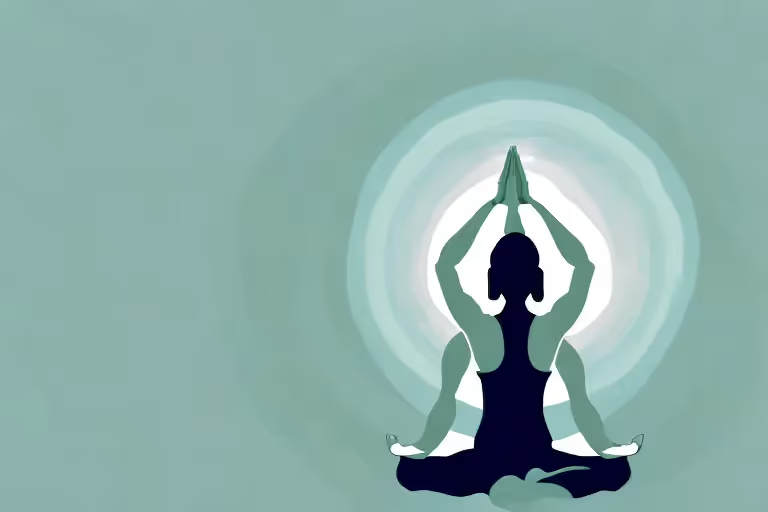Sleep paralysis is a phenomenon that occurs when a person is unable to move or speak while falling asleep or waking up. These episodes can last for a few seconds to a couple of minutes and can be quite frightening. This article will delve into the intricacies of sleep paralysis, its causes, symptoms, treatments, and much more.
As part of our glossary on Sleep, we aim to provide a comprehensive understanding of this intriguing yet often misunderstood sleep disorder. The information provided is based on scientific research and expert opinions in the field of sleep studies.
Understanding Sleep Paralysis
Sleep paralysis is a type of parasomnia, a category of sleep disorders that involve unwanted events or experiences that occur while you are falling asleep, sleeping, or waking up. It is closely related to other sleep conditions such as narcolepsy and night terrors.
During an episode of sleep paralysis, the person is conscious but unable to move or speak. This can be a terrifying experience as it often includes hallucinations and a sense of dread. However, it's important to note that sleep paralysis is not harmful and doesn't pose any serious health risks.
The Science Behind Sleep Paralysis
Sleep paralysis occurs due to a disruption in the transition between different sleep stages, particularly between REM (rapid eye movement) sleep and wakefulness. During REM sleep, our brain is highly active, and most dreaming occurs. One of the characteristics of this stage is muscle atonia, a state of almost complete muscle paralysis that prevents us from acting out our dreams.
In normal circumstances, when the REM stage ends, muscle atonia also ends. But in the case of sleep paralysis, this muscle immobility extends into wakefulness, resulting in the inability to move or speak.
Types of Sleep Paralysis
There are two types of sleep paralysis: hypnagogic or predormital, and hypnopompic or postdormital. Hypnagogic sleep paralysis occurs while falling asleep, whereas hypnopompic sleep paralysis occurs while waking up. The experiences of both types are similar, involving a temporary inability to move or speak.
While both types can occur in anyone, hypnagogic sleep paralysis is often associated with people who have narcolepsy, a chronic sleep disorder characterized by overwhelming daytime drowsiness and sudden attacks of sleep.
Causes and Risk Factors
While the exact cause of sleep paralysis is not known, it is believed to be linked to disrupted sleep cycles. Factors that may lead to disrupted sleep cycles include lack of sleep, irregular sleep schedule, mental health disorders like anxiety and depression, and certain types of medication.
Moreover, sleep paralysis is more common in people with a family history of this condition, indicating a possible genetic link. It's also more prevalent in teenagers and young adults, although it can occur at any age.
Associated Sleep Disorders
Sleep paralysis is often associated with other sleep disorders such as narcolepsy and sleep apnea. Narcolepsy is a neurological disorder that affects the control of sleep and wakefulness, while sleep apnea is a serious sleep disorder that occurs when a person's breathing is interrupted during sleep.
People with these sleep disorders have a higher risk of experiencing sleep paralysis. Therefore, if you frequently experience sleep paralysis, it's important to consult a healthcare professional to rule out these conditions.
Psychological Factors
Stress and anxiety are also believed to play a role in sleep paralysis. High levels of stress can disrupt sleep patterns and lead to sleep paralysis. Additionally, people with mental health disorders such as anxiety and depression are more likely to experience sleep paralysis.
It's also worth noting that the experience of sleep paralysis itself can lead to increased anxiety, especially anxiety about sleep, which can in turn lead to more episodes of sleep paralysis, creating a vicious cycle.
Symptoms and Diagnosis
The main symptom of sleep paralysis is being unable to move or speak during sleep transition. However, it's often accompanied by hallucinations and a sense of dread. Some people may also feel a pressure or a choking sensation.

Diagnosis of sleep paralysis is usually based on the patient's description of the episodes. In some cases, doctors may conduct sleep studies or other tests to rule out other sleep disorders.
Hallucinations
Hallucinations during sleep paralysis are a common occurrence and can be quite terrifying. These can be visual, auditory, or sensory hallucinations. Some people report seeing a shadowy figure, hearing footsteps or feeling a presence in the room.
These hallucinations are believed to be the result of the brain trying to make sense of the paralysis. Despite their frightening nature, it's important to remember that these hallucinations are not real and cannot harm you.
Sense of Dread
Many people who experience sleep paralysis report a sense of impending doom or dread. This can be a very distressing experience and can lead to anxiety about sleep. However, like the hallucinations, this sense of dread is a product of the mind and is not indicative of any real danger.
Understanding that these experiences are not harmful and are a result of the brain's response to the paralysis can help reduce the fear and anxiety associated with sleep paralysis.
Treatment and Prevention
While there is no specific treatment for sleep paralysis, addressing the underlying causes can help manage the condition. This may include improving sleep hygiene, managing stress, and treating any associated sleep disorders.
Medication is rarely used to treat sleep paralysis. However, in cases where it's associated with narcolepsy or severe anxiety, doctors may prescribe certain medications to help manage these conditions.
Improving Sleep Hygiene
Good sleep hygiene can help prevent sleep paralysis. This includes maintaining a regular sleep schedule, creating a comfortable sleep environment, and avoiding stimulants like caffeine and nicotine close to bedtime. Regular exercise and a healthy diet can also promote better sleep.
Additionally, certain relaxation techniques such as deep breathing, progressive muscle relaxation, and meditation can help improve sleep quality and reduce the likelihood of sleep paralysis.
Managing Stress
Since stress and anxiety are linked to sleep paralysis, managing these conditions can help prevent episodes. This can be achieved through various stress management techniques such as yoga, mindfulness, and cognitive-behavioral therapy.
Moreover, if sleep paralysis is causing significant distress, psychological counseling can be beneficial. A therapist can provide strategies to cope with the fear and anxiety associated with sleep paralysis and can help break the cycle of sleep anxiety.
Conclusion
Sleep paralysis can be a frightening experience, but it's important to remember that it's not harmful and doesn't pose any serious health risks. Understanding what it is and what causes it can help reduce the fear associated with this condition.

While there is no specific treatment for sleep paralysis, improving sleep hygiene, managing stress, and addressing any associated sleep disorders can help manage and prevent episodes. If you frequently experience sleep paralysis, it's important to consult a healthcare professional to rule out other sleep disorders and to get appropriate treatment.



.webp)






.avif)

%20(1).avif)


.avif)
.avif)
.webp)


.avif)


















































































































.avif)

















.svg)









